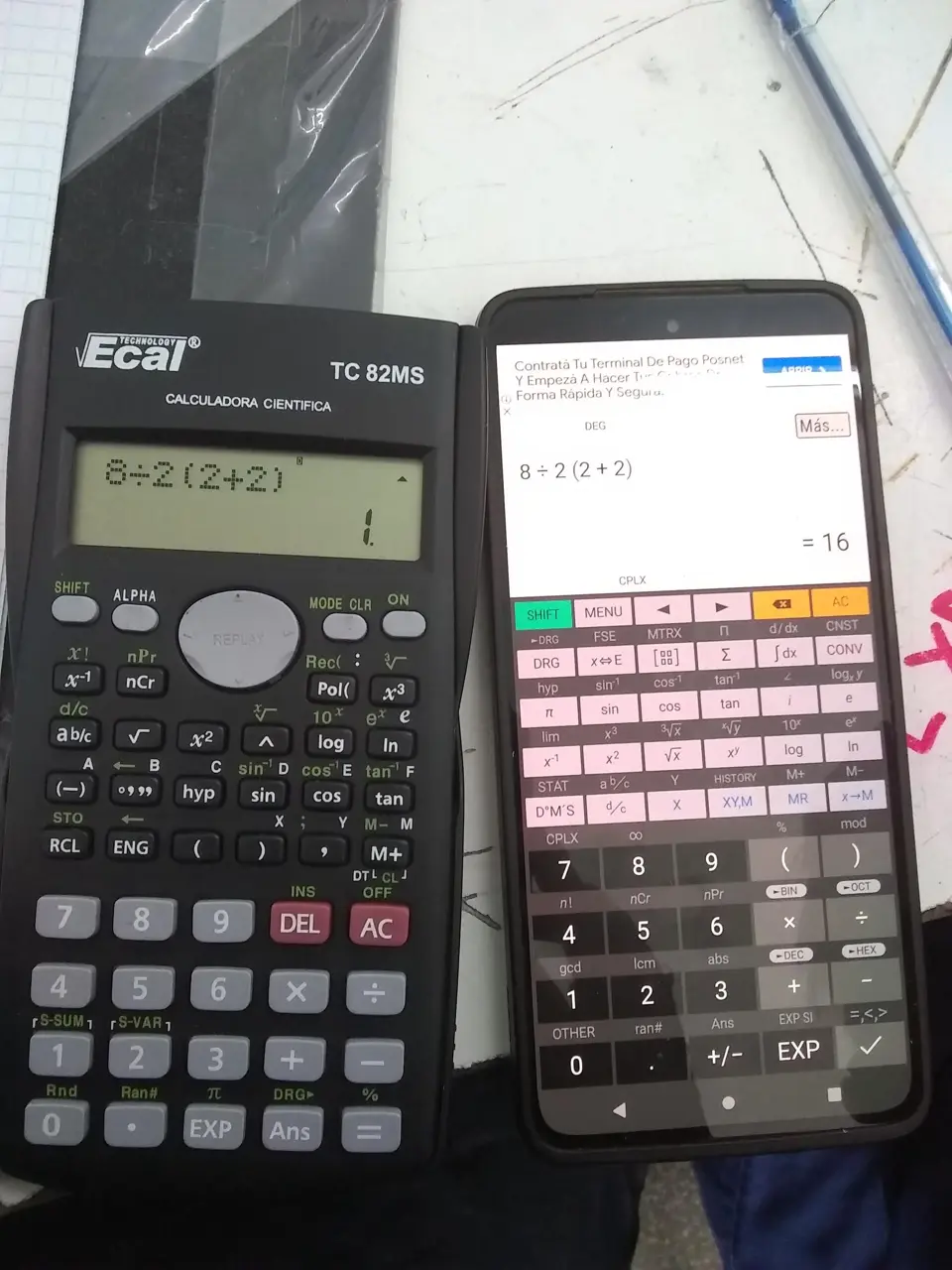this post was submitted on 03 Dec 2023
389 points (95.6% liked)
196
16898 readers
1810 users here now
Be sure to follow the rule before you head out.
Rule: You must post before you leave.
If you have any questions, feel free to contact us on our matrix channel.
founded 2 years ago
MODERATORS
you are viewing a single comment's thread
view the rest of the comments
view the rest of the comments

No, not because leftmost (did I say leftmost? No, I did not), because brackets. Brackets are always first in order of operations.
No, we're at x^2, because 2(4) is a bracketed term, and order of operations rules is brackets before exponents, and to solve the brackets we have to distribute the 2, so 2(4)^2=(2x4)^2=8^2=64.
Depends. The Distributive Property is a property, but The Distributive Law is a rule. Properties explain how/why things work, but rules have to be obeyed if you want to get the right answer. Terms is a rule, based on properties (similarly, The Distributive Law is a rule, which makes use of the Distributive Property).
Are you referring to pronumerals? Textbooks are quite explicit that the same rules apply to pronumerals as to numerals (since pronumerals literally stand-in for numerals).
Not priority, they are already fully solved because they are terms. If we have 2a, then there's literally nothing to be done (except substitute a value for a if you've been told what it is). 2xa on the other hand needs to be multiplied (2 terms separated by a multiplication).
Noted that you ignored where I pointed out why it makes a difference
Which book? I don't know what you're talking about now.
AKA Terms. And Terms are not expressions. Expressions are defined as being made up of Terms and operators. See previous textbook screenshot. 2a is a Term, 2xa is an Expression. And yes, you are right that a Term is a simplified expression, and being simplified, there is no further simplification to be done.
No, they are Terms. There is no multiplication. Multiplication refers literally to multiplication symbols. A Term is a product. i.e. the result of a multiplication. That's why they don't have multiplication symbols in them - it has already been done.
EXACTLY!! When a=2 and b=3, ab=6, a single number. AKA a Term.
We use it because that's how Maths works, and is a rule taught in all the textbooks, and has been for more than a century.
The name is Term. You can read about this exact issue in Maths textbooks.
I teach Maths, on which much of Physics is built.
In other words, you didn't even read it. The sources are in it - there are Maths textbooks in it.
Alright there buddy, I'd like to close this.
It's clear that your a troll. However, on the offchance that you didn't know, I'll tell you where you went wrong on the first one.
2(4)^2=(2x4)^2=8^2=64You can't distribute into a bracket, that's raised to the power of anything other than 1, like this. To do this you need to raise distributed number to the bracket's power's inverse. in this case 1/2.
2(4)^2=(2^(1/2)*4)^2=(sqrt(2)*4)^2=2*4^2=2*16=322*16=32Maybe if we look at it with roots you'd get it. wolfram syntax
2(4)^2=2Surd[4,1/2]2Surd[4,1/2]= Surd[4*2^(1/2),1/2]= (4*sqrt(2))^2= 4^2*2= 16*2= 32I hope you don't get scared from this math, you're a teacher afterall. I have no Idea how you could have gotten a degree or not kicked from school on day 1. Unless.. you are trolling me, fuck you for that. If you respond with more bullshiting, I'll block you.
Yes, that's right. Brackets before Exponents, as per the order of operations rules.
You know that's literally what The Distributive Law says you must do, right? Unless you have a source somewhere saying there's an exception?
Apparently you didn't bother reading any of the links I gave you, so here's one of the many textbooks which says you must distribute...
In case that's unclear, that means that 2x² and 2(x)² aren't the same thing (since 2(x)=(2x) by definition).
You know Wolfram disobeys The Distributive Law, right? I know I'm not the only one who knows this. Is that why you're insisting your way is right? Cos they're known to be wrong about this.
You call quoting Maths textbooks "bullshiting"?